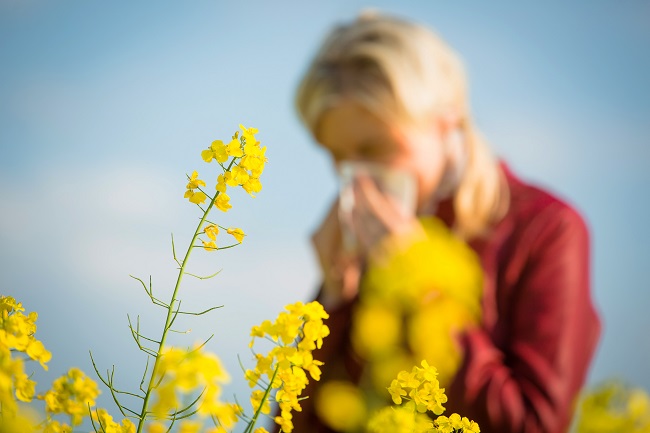Pollen Allergies
Pollen allergies can leave you feeling awful when they start in the spring, summer, or fall. The allergy comes from a reaction to the powder that the stamen of flowering plants releases and disperses into the air. It travels great distances with the help of the wind, birds, or other animals. You inhale the yellow powdery substance through your mouth and nose, and this causes the symptoms of an allergic reaction.

Different plants can cause allergies in different seasons. In spring, you need to watch for birch, hickory, and oak trees as well as some grasses that can cause a systemic reaction. In summer and fall, ragweed causes a problem for some people. Figuring out which plant you are allergic to will help you fight the allergy issues.
The allergic reaction can cause many symptoms within the respiratory tract, such as a sore throat, coughing, runny nose, watery eyes, phlegm issues, and headaches or migraines. If you have asthma, this intensifies the allergic reaction to the pollen as it causes severe coughing and wheezing.
Watching pollen counts on the local news may help if you plan a trip outside or are simply going out to work in the garden. Although, a high pollen count does not mean you will have a reaction as it also depends on where you live. If the weather is hot, dry, and windy, there is a better chance that pollen is traveling on the air currents. However, if you live in a cool, wet environment, the pollen washes away from the rain and may not affect you at all.
The best treatment is first finding out what is causing your allergic reaction. A good allergist can test you to find out which allergen causes the worst reaction. After testing, they can give you allergy shots to help your resistance build to fight the pollen. They can also prescribe a pill that dissolves under the tongue for those people who suffer from ragweed allergies.
The best advice is to use protection outside. Wear a dust mask when you are gardening or cutting the grass. If you do not have a mask, wear a scarf wrapped around your nose and mouth so you will not breathe in the pollen. Do not go outside on high pollen days unless necessary. Taking care of yourself during the allergy season is going to make you feel better all year-long.
